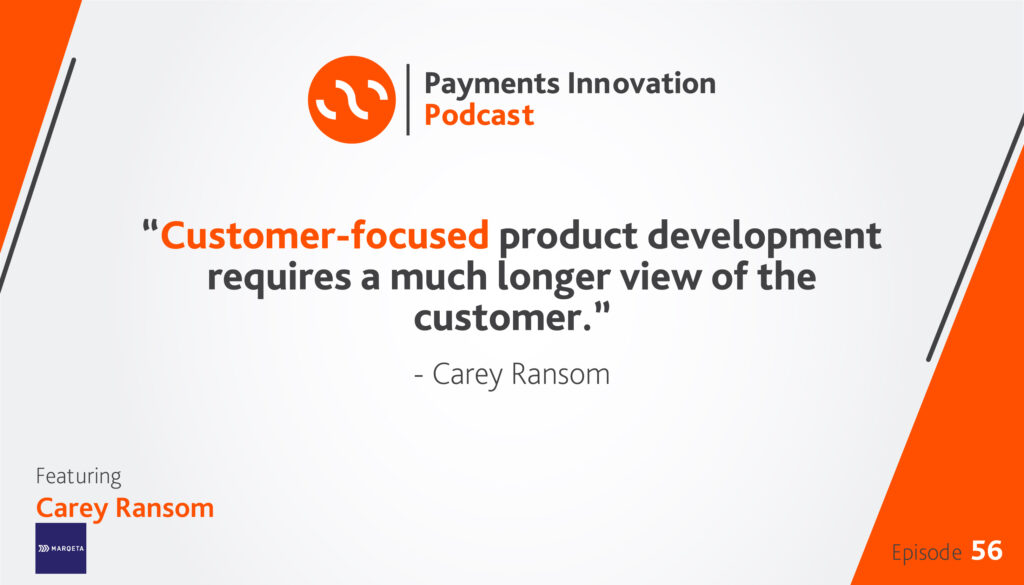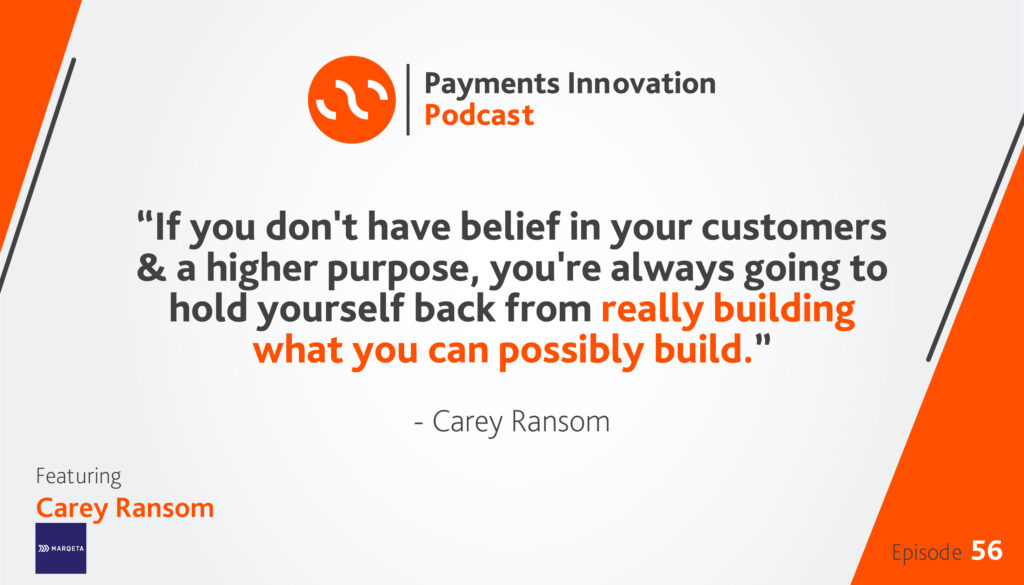Financial services make plenty of sense. If you are a financial services professional. But what about the rest of us?
On this episode of the Payments Innovation Podcast, our guest Carey Ransom joined us to discuss his passionate belief that financial services should revolve around the average human’s life.
People in financial services understand the financial game. But what about the rest of us?
 Carey talks about his work in fintech as a doctor speaks of caring for the world’s impoverished nations. And he means it.
Carey talks about his work in fintech as a doctor speaks of caring for the world’s impoverished nations. And he means it.
Originally, Carey saw a financial system that was, in his words, “a game,” that only the professionals within financial services really understood how to operate. For the rest of us, the financial industry intersects our lives in inconvenient ways, and forces us to interact with it in awkward methods.
Carey wants that to change.
He envisions a world where people interact with financial services in a way that’s intuitive and packages offerings that are centered on an average person’s family life.
How AI & ML could are the heroes, not the villains
Carey grew up in a community banking environment with a family bank. It’s where he opened his first bank account. He enjoyed the “customer-centricity” and family oriented approach of the banking services.
But as he made his way through his life, and his career, he saw that many financial services lost, or never had, this customer-focused, community-enveloping feel. Many would agree with that sentiment. But, here’s the interesting part:
While most believe AI and ML to be the villain of all this, Care believes those 2 are actually the potential heroes.
ML and AI, to him, can actually help breathe fresh air into fintech in a way that assists customers in handling many of the day-to-day money movement. He sees no reason why a human must often choose between A) being physically involved with money movement between accounts, when the cash is clearly available, or B) being penalized for failing to ensure the correct dollars were moved to the correct account by a specified time in a particular method.
The 1 product Carey is particularly proud of — Payoff
Carey’s had a long list of fintech projects, employers, and board he’s served on — Aspiration, Givsum, Koffie Labs, Experian, and others.
But one particular company (Payoff) provided a product he’s especially proud of.
Payoff’s goal is simple: Provide a personal loan with prime or subprime rates, which people can use to immediately pay off all high-interest credit card debt. Particularly, this not only helps consumers save money on interest, but it also increases their credit score, allowing users to potentially buy a house or a car at better interest rates.
Carey and his team believed so much in the power to help people, they actually convinced FICO to release documentation that said, “Yes; using a personal loan to payoff credit card debt can materially impact your credit score in a positive way.”
At the time, users only needed to tip Payoff what they thought was fair for the service. From there, 10% of that tip money went to economic empowerment. (It’s easy to see why this is one of Carey’s favorite projects.)
 The 1 problem Carey is waiting for a founder to solve:
The 1 problem Carey is waiting for a founder to solve:
As Carey is on multiple boards and works with multiple entrepreneurs and founders, I asked him this:
“What problem are you really hoping to see a founder solve?”
Here’s what he said:
Financial institutions really have not figured out how to build their financial products and models around family units at the atomic level. Touchpoints, offerings, marketing … everything is still not quite based upon what actions, career changes, and education, families partake in in their life.
He says fintechs looking to solve this issue could start by looking at families as businesses themselves — with P&L statements, expenses, liabilities, etc.
To ensure that you never miss an episode of Payments Innovation, subscribe on Apple Podcasts, or Spotify, or here.
Until next time!

